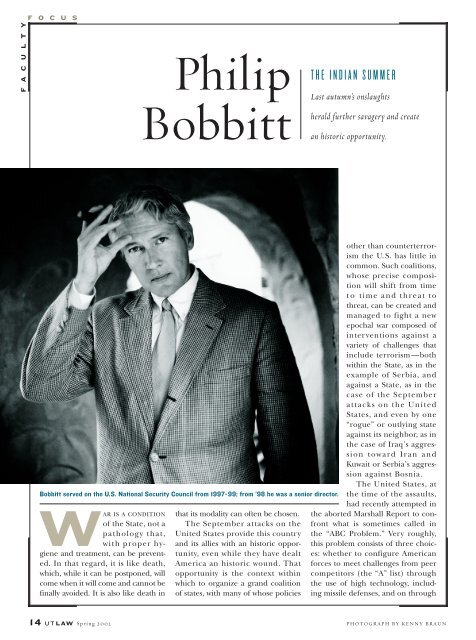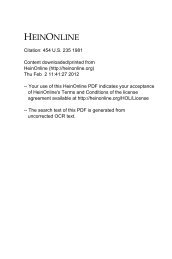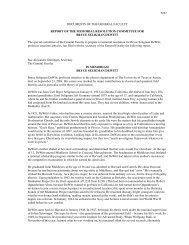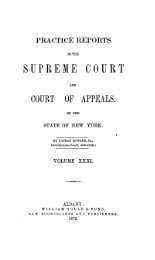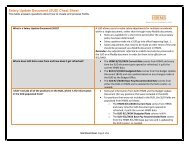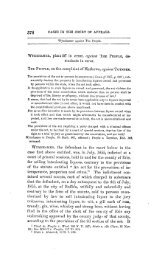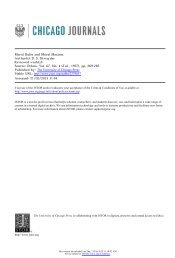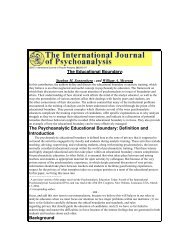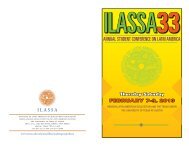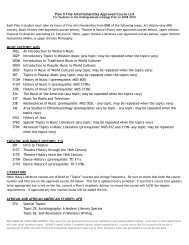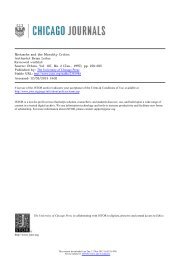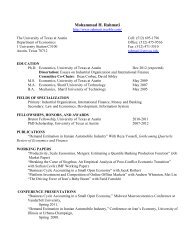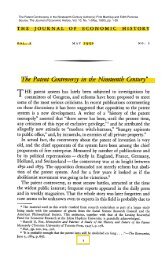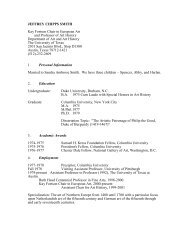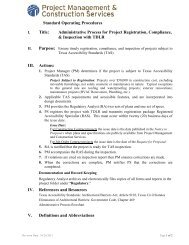Spring 2002 - The University of Texas at Austin
Spring 2002 - The University of Texas at Austin
Spring 2002 - The University of Texas at Austin
You also want an ePaper? Increase the reach of your titles
YUMPU automatically turns print PDFs into web optimized ePapers that Google loves.
F A C U L T Y<br />
F O C U S<br />
AR IS A CONDITION<br />
<strong>of</strong> the St<strong>at</strong>e, not a<br />
p<strong>at</strong>hology th<strong>at</strong>,<br />
with proper hygiene<br />
and tre<strong>at</strong>ment, can be prevented.<br />
In th<strong>at</strong> regard, it is like de<strong>at</strong>h,<br />
which, while it can be postponed, will<br />
come when it will come and cannot be<br />
finally avoided. It is also like de<strong>at</strong>h in<br />
14 UTLAW <strong>Spring</strong> <strong>2002</strong><br />
Philip<br />
Bobbitt<br />
Bobbitt served on the U.S. N<strong>at</strong>ional Security Council from 1997-99; from ’98 he was a senior director.<br />
W<br />
th<strong>at</strong> its modality can <strong>of</strong>ten be chosen.<br />
<strong>The</strong> September <strong>at</strong>tacks on the<br />
United St<strong>at</strong>es provide this country<br />
and its allies with an historic opportunity,<br />
even while they have dealt<br />
America an historic wound. Th<strong>at</strong><br />
opportunity is the context within<br />
which to organize a grand coalition<br />
<strong>of</strong> st<strong>at</strong>es, with many <strong>of</strong> whose policies<br />
THE INDIAN SUMMER<br />
Last autumn’s onslaughts<br />
herald further savagery and cre<strong>at</strong>e<br />
an historic opportunity.<br />
other than counterterrorism<br />
the U.S. has little in<br />
common. Such coalitions,<br />
whose precise composition<br />
will shift from time<br />
to time and thre<strong>at</strong> to<br />
thre<strong>at</strong>, can be cre<strong>at</strong>ed and<br />
managed to fight a new<br />
epochal war composed <strong>of</strong><br />
interventions against a<br />
variety <strong>of</strong> challenges th<strong>at</strong><br />
include terrorism—both<br />
within the St<strong>at</strong>e, as in the<br />
example <strong>of</strong> Serbia, and<br />
against a St<strong>at</strong>e, as in the<br />
case <strong>of</strong> the September<br />
<strong>at</strong>tacks on the United<br />
St<strong>at</strong>es, and even by one<br />
“rogue” or outlying st<strong>at</strong>e<br />
against its neighbor, as in<br />
the case <strong>of</strong> Iraq’s aggression<br />
toward Iran and<br />
Kuwait or Serbia’s aggression<br />
against Bosnia.<br />
<strong>The</strong> United St<strong>at</strong>es, <strong>at</strong><br />
the time <strong>of</strong> the assaults,<br />
had recently <strong>at</strong>tempted in<br />
the aborted Marshall Report to confront<br />
wh<strong>at</strong> is sometimes called in<br />
the “ABC Problem.” Very roughly,<br />
this problem consists <strong>of</strong> three choices:<br />
whether to configure American<br />
forces to meet challenges from peer<br />
competitors (the “A” list) through<br />
the use <strong>of</strong> high technology, including<br />
missile defenses, and on through<br />
PHOTOGRAPH BY KENNY BRAUN


